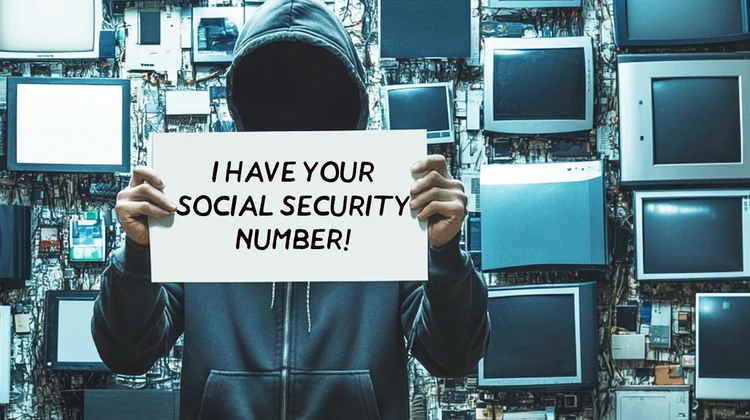Should you freeze your credit? Is water wet?

The truth-telling of how you, us, we all might have been affected in the recent National Public Data breach aka the Social Security leak was revealed over the weekend.
And, if youre like the small sample of folks ConsumerAffairschecked to see if theirpersonal information was compromised, its a good chance that you, too, are part of whats been hacked.
If you remember, National Public Data, a background check service owned by Jerico Pictures Inc., was hit by hackers who may have gotten their hands on millions, if not billions, of personal records.
The actual number has become a huge question mark, however. A proposed class action lawsuit claimed that up to 2.9 billion personal records could have been exposed.
But, according to an official data breach notice filed in Maine, National Public Data stated that around 1.3 million records may have been compromised. Either way, this is serious stuff.
Teresa Murray, the Consumer Watchdog Director, U.S. Public Interest Research Group (US PIRG), told ConsumerAffairs that the people who stole these records can do an array of deeds, none of them good. Using the personal information exposed in the breach, someone could:
-
Hack your bank account or investment account.
-
Hijack your phone number with your mobile provider, using a tactic called port hijacking or SIM swapping.
-
Contact you while impersonating a relative of yours and pretending they need money for some urgent reason.
-
Open a new loan or credit card.
-
Create a Google Voice number in your name and commit crimes.
Was your Social Security number one that was hacked?
Some cyber groups have set up websites to help individuals check if their data was impacted by the breach. And both, unfortunately, may bring tears.
In doing scans of this reporters data as well as others we know, the stolen data can date back well into the 1990s. Social Security numbers, telephone numbers, birthdates, addresses all exposed and all for sale.
The two sites you can use to identify whether youve been exposed or not are: NPD.pentester.com, which enables searches by first name, last name, state, and birth year and NPDBreach.com which allows searches by name, zip code, Social Security number, or phone number.
You should use both because the NPDBreach.com widget will specify whether you were involved in the National Data Breach while the NPD.pentester.com widget will give you a much deeper sense of what parts of your personal information is out floating around in various databases or on the Dark Web.
Dont stop there freeze your credit report
If youre thinking, Hmm, should you freeze your credit? or Should I lock my credit report? Darn right you should. Its the most sure-fire thing out there that can protect your personal information from being misused.
Murray said that if youre like most people, you probably think its a hassle and have yet to do it.
This takes 20 minutes by phone. Research shows only about 10% of consumers have frozen their credit files, she said.
People talk about maybe getting around to it someday. In reality it will take you minutes to freeze your files but if you get hit with fraud because you didnt freeze them, it likely will take hours and days and weeks to unravel the mess of identity theft.
How to freeze your credit? Murray shared US PIRGs easy, step-by-step guide, or you can contact each of the three major credit bureaus separately, or use a service like CreditKarma:
And if you really want to batten down the hatches, you can go further. You cansign up for a credit monitoring service or any of 22 other things that can lock down your personal information.
Does freezing credit affect your score?
No, freezing your credit does not directly affect your credit score.
It's important to understand that a credit freeze simply prevents lenders from accessing your credit report. This makes it much harder for someone to open new accounts in your name, which is a great way to protect yourself from identity theft.
Your credit score is still calculated based on the information in your credit report, even if it's frozen. So, any positive or negative activity on your existing accounts will still impact your score.
However, there is one, albeit small, inconvenience. If you apply for a credit card, a loan, or anything else that involves a credit check, you might have to unfreeze your credit report so the company youve applied for credit with can check your credit. Then, after thats done, you can re-freeze your report.
But, the credit reporting companies have worked hard to simplify that. When you initially freeze your credit, you will receive a PIN or password. You'll need this to lift the freeze, even temporarily. With that PIN, you can usually choose how long you want the freeze lifted. This could be for a few hours, a few days, or even longer, depending on your needs.
Photo Credit: Consumer Affairs News Department Images
Posted: 2024-08-26 11:38:08



















